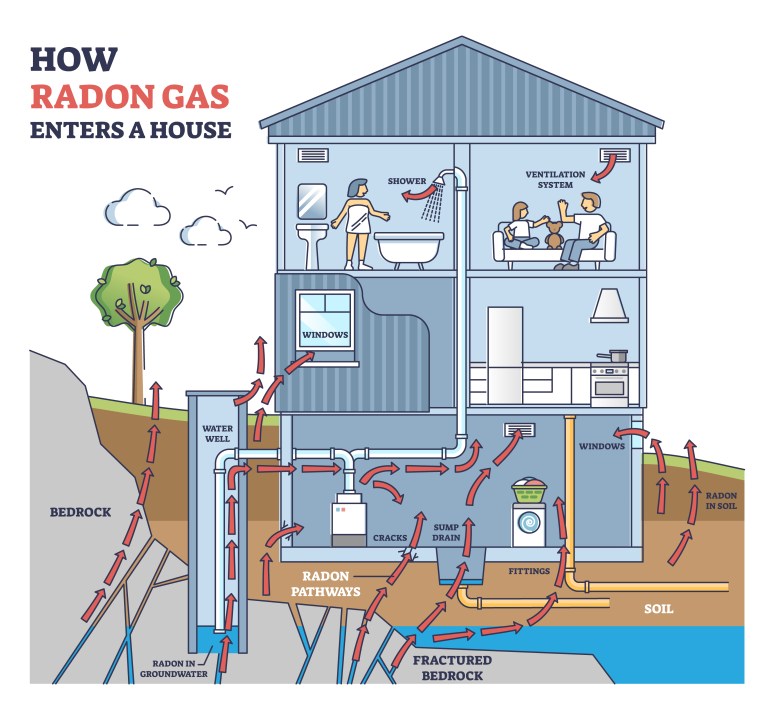DENVER (KDVR) — Radon gas is linked to nearly 30,000 deaths a year in the U.S. and is the second-leading cause of lung cancer. Even among non-smokers, radon gas causes 500 deaths a year in Colorado, according to the Environmental Protection Agency.
A Colorado law went into effect on July 1 that requires testing and mitigation to be conducted by a licensed, certified business.
Tyler Huff told FOX31 that when he moved into his new home, he was shocked to learn it had deadly radon levels that were five times the level the EPA recommends. Huff made the discovery by testing the home himself. He is the owner of Colorado Radon Mitigation LLC, a legitimate, certified and licensed business.
Huff testified at state hearings to support the new law to require proper testing.
“We tend to see a lot of shadiness sometimes, especially when it comes to the sellers. They’re obviously moving out of the house so (it is) no longer their prerogative, you know, for the buyer coming in. And so they might use someone that’s the cheapest, fastest, that doesn’t have a certification,” Huff said.

Colorado radon testing information
Radon is a naturally occurring radioactive gas that can enter homes from the soil.
The Colorado Department of Public Health and Environment reports approximately 50% of homes in Colorado have radon levels higher than what the EPA considers to be safe. That’s why getting it right when it comes to testing is important.
Certification requires classroom work and an extensive exam. Results are certified by the national board before being submitted to the state. Equipment must be closely monitored and certified as well.
“The equipment that we use has to be sent back every year to the manufacturer for recalibration and retesting,” Huff said.
Anyone hiring a business to test, monitor or mitigate an area where radon gas is suspected should ask to see a state license and national certification.
The Colorado Department of Regulatory Agencies provides a searchable database of licensees, which is available here. More than 300 professionals have obtained licensure to date.
More information can be found at DORA in this booklet, which is also available in Spanish.
